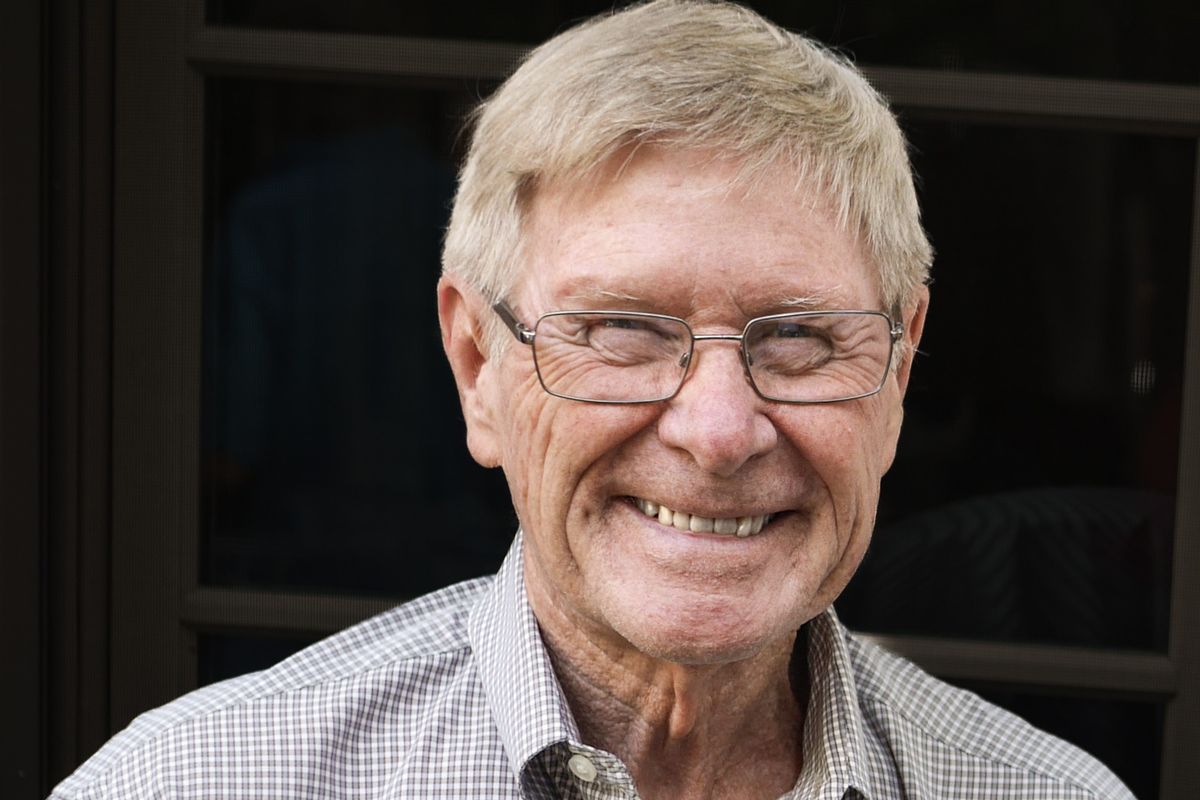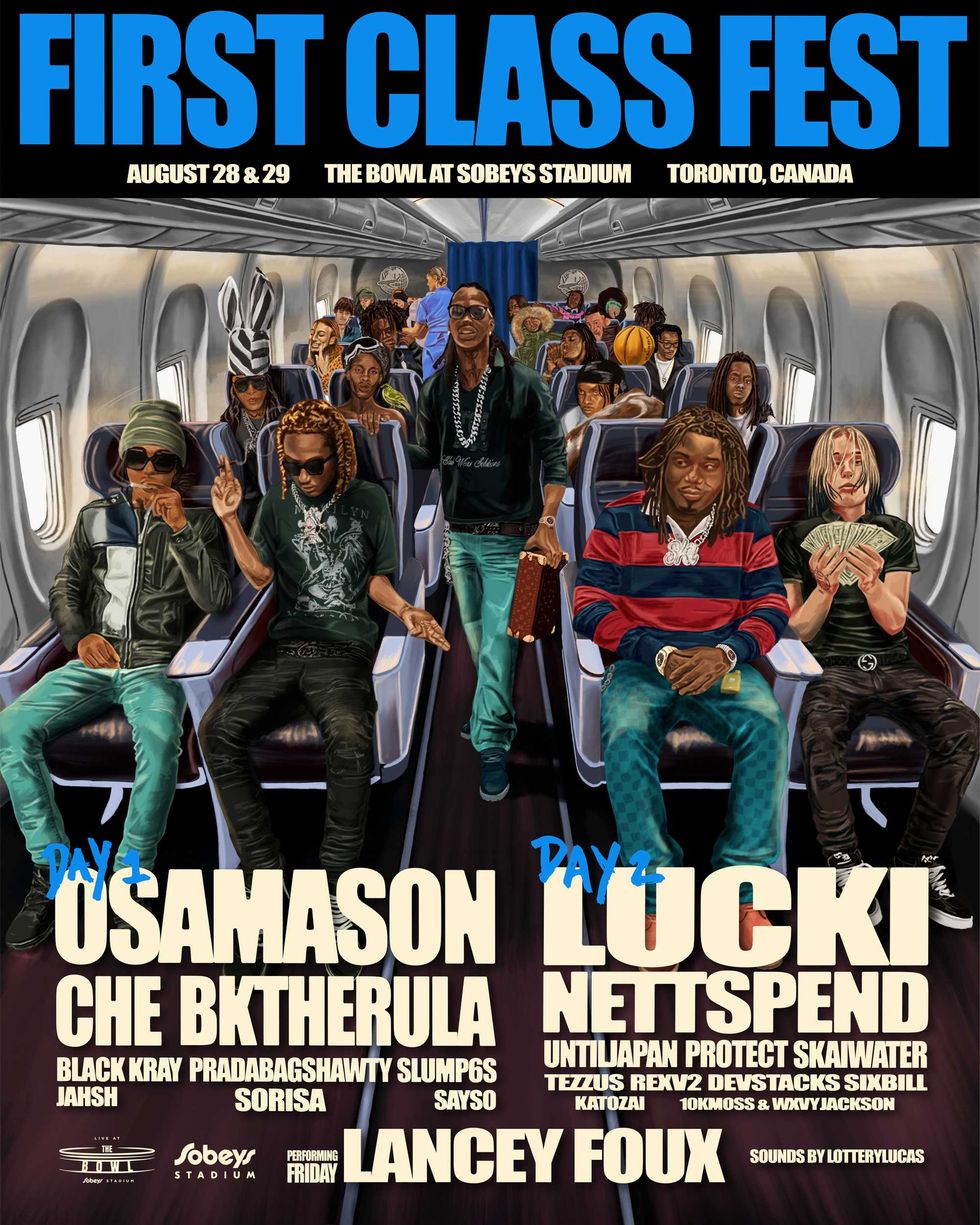How Ed Preston's Glorious Years At RCA Put Canadian Country On The Charts
The Canadian Country Music Hall of Famer looks back at his long and prosperous career from drumming to radio to record labels, including an Elvis Presley frenzy in the '60s and '70s.

Ed Preston
Shortly following celebrating his 93rd birthday several weeks ago, Ed Preston reflected on his music industry days with great affection.
Throughout a 50-plus year career that encompassed record company and radio station tenures, as well as a session and touring musician, the Hamilton-born, Oakville-based member of the Canadian Country Music Hall of Fame has seen it all and then some.
Glancing in the rearview mirror as he travels down memory lane, Preston is very happy with his lot in life — one, aside from all his professional accomplishments, that gifted him and his wife Anne with four daughters, 10 grandchildren and 13 great-grandchildren.
"No regrets," says the one-time RCA Canada senior vice-president and general manager.
The label's roster under his governance from 1976 to 1982 included such domestic acts as Carroll Baker, The Canadian Brass, Marie Bottrell, Carlton Showband, Dick Damron, Family Brown, The Good Brothers, Powder Blues Band, Tommy Hunter, Mercey Brothers and Ronnie Prophet and international signings The Guess Who, Steppenwolf, Three Dog Night, John Denver, David Bowie, Lou Reed, Daryl Hall & John Oates, K.C. & The Sunshine Band, Alabama, Boney M, Ofra Harnoy, Charley Pride, Harry Belafonte, The Alan Parsons Project, Vangelis, The Judds, Vince Gill, Willie Nelson, Waylon Jennings, Gary Burton, Cleo Laine, Henry Mancini, Oscar Peterson (distribution) and of course, the biggest of them all, Elvis Presley.
"I had a life in music and it's been wonderful. I didn't know it would ever take those directions, but I was very fortunate. I was never fired for a job and always had something going on with music."
The son of Moses — weaving blankets on a loom at Porritts & Spencer — and Marion Preston — a homemaker, sowed the seeds of musical enjoyment into him early. Classical music lovers, they invested in piano lessons when he was five years old in his native Hamilton.
While he dutifully tended to his keyboard studies, he also developed a fondness for percussion, joining the Boy's Brigade Band when he was 10 to pound a bass drum. But even that didn't completely satisfy him.
"I always wanted a snare drum," Preston reveals. "So, I joined the Air Cadet Band and got a snare drum. It went on from there."
As a teen grows older, taste changes and Preston found himself playing boogie-woogie, "although I never got too serious with it."
However, he got serious enough with it to enter a competition, only to be upstaged by another rising phenom.
"I got pretty good at it and got an audition for Ken Soble's Amateur Hour (1936-1960s) I auditioned with classical music, of course., and when I finished, they asked me if I could play boogie-woogie. I was kind of curious as to why, and they said, 'Because we had a Black kid from Montreal audition two weeks ago and we got the biggest mail response we've had for any artist.' It was Oscar Peterson. So, I didn't get a call back: my effort at Tommy Dorsey boogie-woogie wasn't too great with the old Pinetop Smith boogie piece that they did."
His choice of instrument also changed.
"My parents got me a second-hand set of drums with a big picture in front and lights inside," he recalls. "I only had them for two weeks and there was an audition notice in the paper at a music store. So, I put my drums on a streetcar, went to this audition and two weeks later I made my first seven dollars."
Preston says drumming came naturally to him.
"It wasn't as hard work as long hours at the piano stool. I preferred jazz drumming."
Midway through attending High School of Commerce in Hamilton, Preston worked part-time in Eaton's record department before he received his first life-changing opportunity.
"My homeroom teacher in public school got a call from CHML [radio]. They were looking for somebody to work in their music library and I was the only one that he knew that might be interested. I got a call from Ross Eastcott, the manager of the station and he said, 'Why don't you come and talk to us?' We had lunch and my mind was pretty made up when I went back to Eaton's."
Leaving school in his third year, he started at the MOR Hamilton radio station in 1947, overseeing the library and categorizing the music.
"They were into long programming," Preston remembers. "They had a show called Maple Leaf Ballroom — all big-band stuff with guest vocalists, so they wanted everything grouped - all the Bing Crosby stuff together, all of the Oscar Peterson — I was able to listen to all of his 12-inch 78s in those days. All of the music back then was on 78s."
Preston progressed to programming, producing such CHML radio shows hosted by future CBS and TNN Hee Haw comedy series writer and performer Gordie Tapp, including the jazz-driven What's On Tapp and the Saturday morning country music show called The SAN Western Revue, and airing Canadian talent whenever he could.
"There were a lot of dedications to people who were up in the Hamilton Sanitorium," Preston recalls. "So they took requests. But it was a country show and started with Hank Snow and Wilf Carter types of artists like The Sons of the Pioneers (featuring Canadian Robert Clarence Nobles, better known as Bob Nolan.)
"It was one joke after another," said Preston of Tapp. Tapp also co-founded and hosted the country music show Main Street Jamboree, (1952-1957) which began on CHML and eventually transitioned to CHCH Television in 1953.
The band's TV house drummer? Ed Preston, who percussively supported such visiting domestic and U.S. recording stars as Dianne Leigh, Jack Kingston, Bill Long, Family Brown from the Canadian ranks and Little Jimmy Dickens, Jim Edward Brown, Carl Smith and Marty Robbins visiting from south of the border.
Preston performed double duty at the station and the show, until the program proved to be so popular that when Main Street Jamboree went out on the road in '57, Preston left CHML to join them — including for a spell downstairs at the El Mocambo.
One act he became close to was Sonny James, who had scored the big hit "Young Love," which would later be revived in the 1970s by British rockers Bad Company. In James' version, drum brushes introduced the song.
"Sonny contacted me many, many times when he was touring, and asked, 'Have you got your brushes handy?'" Preston recalls with a chuckle.
Preston was also almost conscripted by Brenda Lee's team to join her touring band.
"We backed up Brenda Lee for three nights at the Hamilton Home Show, and at the end of the sound check, they asked me if I could handle drum solos in the show," Preston recalls, adding that he seriously considered the offer for 48 hours.
"My wife and I were expecting another child at the time and they explained that the road was pretty rough and that she was only working Fridays, Saturdays and Sundays as she was still going to school," Preston reveals. "It was not a full week's work and I couldn't count on that."
After returning to CHML at the invitation of the station manager in 1959, music director Preston eventually left for good when he decided to become a radio station rep at the urging of Columbia Records promotion chief Charlie Camilleri.
Camilleri pitched Preston to join Columbia, but Jack Feeney — who knew the head of RCA Canada's music publishing and country music division from Feeney's Hamilton days of managing Bob Moody's Record Bar — offered a more persuasive argument.
"I felt that RCA wasn't aggressive enough on some levels," concluded Preston, who's credited with breaking the Ed Ames hit "Try To Remember" and Steppenwolf's "Born To Be Wild." "There was a lot of stuff that they just didn't put enough emphasis behind and I thought I could be of more help as a promotion man."
He joined in 1967, with the label riding the sales successes of The Monkees, Harry Belafonte, The Sound Of Music soundtrack and, of course, Elvis Presley.
"We had a saying that if we couldn't make our month in sales, we'd release another Elvis album," Preston says.
His first day at RCA was an awkward one.
"One of the first things I heard when I started at RCA was that they had turned down the record 'Canada' by Bobby Gimby," says Preston. "RCA was approached first with it but they didn't pick it up. Of course, it exploded. And one of the last promotions I did at CHML when I left was Bobby Gimby at the public school that was across the road from us. My first day at RCA, on the front page of the Globe & Mail was Bobby Gimby."
Preston's first radio success was pitching "More" by John Gary, also his first artist event when he was tasked to take radio programmers to attend a concert by Gary in Windsor.
Preston was eventually promoted to operations manager, splitting the country with Andy Nagy.
"We handled everything from promotion to sales to A&R," says Preston. "I was responsible for everything from Toronto to Vancouver, while Andy handled Québec and the East Coast."
In late '75, Preston was under consideration to head either RCA Canada or RCA Australia.
"I was offered the opportunity to work in the States but I didn't want to do that," he explained. "There was a point when they were looking at me for Australia, although my previous boss, Robert Cook had worked in Australia where they were having some factory problems. He was a specialist in that. They flew us to New York, sat us down and we had a three-or-four-hour interview in separate rooms.
"At 4 p.m. they came to us and said, 'this is the way we see it: Ed, you're running the Canadian company and Bob, you're going to Australia."
Preston, who was given the highest title available — Vice-President and General Manager, because only the head of RCA and all its corporate divisions was afforded the title of President — admits the toughest part was travelling and "being away from family."
"I initially reported to the RCA Group in the U.S., and then I reported to the International Group overseas, so I was hopping across the pond a lot and doing the New York-L.A.-Nashville trek for quite a while."
Preston, who was also appointed to the RCA Board of Directors, rhymes off names like Dolly Parton, Henry Mancini and Hank Snow as he says the friendships he forged with numerous artists were the most rewarding aspect of his career.
But there was one that he didn't particularly care for.
"There was only one I could say I didn't like, and that was Eddie Fisher," Preston notes. "He came to Toronto and I was summoned to be there for the sound check on a Sunday. He was wiped out. He had just walked on stage, picked up the mic, sat on a stool, said, 'Hello, Dolly,' then put down the mic and walked off.
"His road manager came to review all of the promotional stuff we had set up at the Four Seasons (Hotel). We had two rooms: one for television interviews and one for radio. We had either 14 or 16 interviews all set up for that day, which had been approved. He was a no-show. Then we get a call from management saying he's a no-show, and to set it all up again for 'tomorrow.' That was just total rudeness and being unprofessional."
One of the more successful artists who began as a bit of a sleeper would be Roger Whittaker, whose hit "The Last Farewell," which was originally released in 1971 before its 1975 resurrection, was a success largely due to Ed Preston's efforts.
"An American woman was going through Toronto, heard 'The Last Farewell' on a Toronto radio station. and fell in love with the song, that was on an album called A Very Special Man," Preston regales. "RCA in the States had put that album out in '73 and nothing happened, so they discontinued it.
"But we still had it in the Canadian catalogue. The woman went to Sam's, bought the record, and took it home where her husband managed WSBN Atlanta. She insisted that he play this record on air and within a week, trade mag R&R published that it received the heaviest phone response ever.
"Our RCA guy in Atlanta contacted me and said, 'There's no product here — we don't have the album! Do you guys have any copies?' We had a couple of hundred and we shipped everything that we had to Atlanta. That's when I ordered up the single right away. We created a Best of Roger Whittaker album from that."
For his efforts, Preston received a plaque commemorating 500,000 sales.
"God knows where the sales are today because it's still in their catalogue," says Preston.
One of the more frenzied occasions during Ed Preston's governance was the passing of Elvis Presley at the age of 42, on August 16, 1977.
"The day that Elvis Presley died, Colonel Tom Parker called my home to see what it was that RCA Canada was prepared to do," Preston remembers. "That was the time of the 100-year celebration of the music industry at the CNE [Toronto's Canadian National Exhibition.] We redecorated our booth and put a little extra emphasis on Elvis."
The demand for Elvis product was overwhelming, with Preston estimating that sales of the singing legend increased by 70%-75% in the aftermath of his death.
"Our branch out west had the advantage of being able to book orders the moment they heard about it, and they almost drained our Toronto warehouse. Every item on Presley was ticked off and pulled immediately. With our pressing plant, we had to get into a Presley mode. It was incredible."
His death also occurred during the coloured vinyl craze of the late '70s.
"We did a lot of yellow gold vinyl and we put out a lot of blue and red Elvis product," Preston admits.
Amazingly, even though he attended three of Presley's concerts over the years, Preston never did meet Elvis.
He did, however, meet the artist's intriguing manager, Colonel Tom Parker.
"Whenever we went gold, the Colonel insisted on having gold records made available so that they could put them up in the hotel," says Preston. "On a couple of occasions, I delivered the gold records to his Los Angeles office within RCA headquarters. The office kept him close to Las Vegas, which he loved. And we had to take Cuban cigars with us as well. That always got us in the door."
Ultimately, it was Ed Preston's association with Roger Whittaker that prompted Preston's departure from RCA, heading up Whittaker's new label, Tembo Canada, for which he was responsible for the artist's recording and publishing in North America.
The Tembo artist roster before Preston's sojourn at the company included Veronique Beliveau, and he signed both Carroll Baker and The Spitfire Band to the label, as well as singles by pianist John Arpin.
"That was a company to promote and give young Canadian talent a shot. We did a lot of French stuff originally and then down the road, we ended up with Michel Pagliaro. It ended up being a good adventure for [Whittaker]."
In 1994, after selling Whittaker's masters to BMG International, Preston left Tembo to focus on Ed Preston Enterprises and EP Records and also worked for BMG for three years as a consultant for Roger Whittaker — before winding down into retirement.
Nine years later, he was inducted into the Canadian Country Music Hall of Fame as an industry architect.
"It might be a cliché, but to be voted in by your peers is a proud moment," Preston reflects. "And I was able to have my whole family out in Calgary when the presentation was made. It was very special."
These days, Preston is an avid reader who recently finished actor Henry Winkler's autobiography Being Henry and still stays in touch weekly with the industry through Billboard Canada FYI.
But the most important aspect of Ed Preston’s life?
"My children — they're what's keeping me alive these days," says Preston. "My family is everything."


















